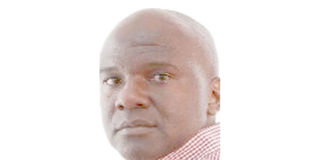Ssekitoleko; doing the right Ugandan thing the wrong way

Author, Nicholas Sengoba. PHOTO/FILE
What you need to know:
Almost every family worked tirelessly hard to have someone abroad who would send in some dollars to take care of the things. If it meant selling a piece of land...
Almost every family worked tirelessly hard to have someone abroad who would send in some dollars to take care of the things. If it meant selling a piece of land...
Twenty-year-old weightlifter, Julius Ssekitoleko had the chance in his sights to become an Olympian; one of the highest honours of any sports person. Here I am not talking about winning a medal, just taking part.
He was in Japan waiting with bated breath just in case he got a wild card. Ssekitoleko’s door did not open and return home to Uganda, the Pearl of Africa, he was scheduled.
Next thing he ‘disappeared’ from the Ugandan team. The news got a divisive subject. Some said that Ssekitoleko had seen a crack in the wall and squeezed through to have a shot at a better future. To others, he had ashamed Uganda.
Ssekitoleko is not the first Ugandan athlete to disappear while representing the country in a major sports tournament (although he might be the first to do so before accomplishing the task of taking part.)
There is nothing particularly special about athletes vanishing. They just do a very Ugandan thing; seeking greener pastures abroad at the first opportunity available. Others do so often. They won’t return after their studies, a conference, visit etc.
The only bit about athletes is that they do it in ‘broad day light.’ Being from deprived backgrounds, many would never afford a ticket to what Ugandans call ‘outside countries.’ Their chance arises when the taxpayer takes care of their fare when they are standing on the big stage of all to observe.
It is the dream of so many of us to go and stay or work in ‘outside countries’ for many reasons. The major one is summarised in the poem Home. Kenyan born Somali poet Warsan Shire who lives in London wrote in the poem Home, ‘No one leaves home unless home is the mouth of a shark…’
For Uganda the shark and the discovery of the foreign land as the place to be started in the late 60’s when there was a fallout between the Kabaka’s government in Mengo and the central government in Kampala. Those who felt witch-hunted fled and started lives abroad as political refugees.
The 70’s and 80’s saw huge droves of emigrants because of the political instability during the regimes of Idi Amin, UNLF and Milton Obote.
After 1986, peace and stability had been established in most parts of the country but people continued steaming out though these where a different species of refugees. They were economic refugees.
When NRM came to power and adopted the Bretton Woods institution’s reforms in the late 80s which included structural adjustment and liberalisation, many felt marginalised.
There was no more subsidised education, housing, healthcare etc. People lost jobs as the Public Service was trimmed.
Agriculture which fed, clothed and educated many started struggling when the cooperatives where disbanded. The middleman came in to fix prices that cheated the farmer etc.
So many then decided to vote with their feet seeking mainly odd jobs abroad in Western Economies. The UK, which up to 1992 did not have visa restrictions for Ugandans, was a famous destination so was Sweden, Japan and the USA. As the numbers grew they made a pathway in the field for others to follow making it quite easy to emigrate. One would be told the tricks that beat the system.
Ssekitoleko should have waited for a trip to an English speaking country with a huge black community in which it would be easy to melt into an already established society unlike Japan where he would be caught asking for directions.
Almost every family worked tirelessly hard to have someone abroad who would send in some dollars to take care of the things. If it meant selling a piece of land to get the fare and the documentation, it happened.
In some cases people would plan and endure beatings to get marks on their bodies in order to sell the story that they had been tortured by security agents.
There are many who have made a fortune in ‘outside countries’ getting themselves a better life working three jobs, saving enough to see their sibling through school plus building houses and stocking farms.
Some who left without an education have got themselves into universities and improved their academic status. Professionals like teachers, nurses and doctors are paid in a month more than they would earn back home in a year.
A Ugandan musician based in Sweden, Philly Bongoley Lutaaya then gave us the term ‘kyeyo’ (the broom.) In his hit Naali Kwagadde he had the line ‘ekyeyo kinfukidde olukokkobe..’ a lament about the rewarding back breaking that came with the menial jobs out there.
At some point kyeyo became so popular that remittances sent by Ugandans from abroad took the lion’s share of the GDP! At first the government treated it with contempt for it was an affront to the notion that Uganda had turned into a prosperous island of peace.
Uganda later swallowed humble pie and now encourages export of cheap domestic labour mainly to the Middle East. The airport is ever full of young women and men on this mission.
But then that is now all. What completes the picture of the runaway citizen is the belief deep down that Uganda is a failed state.
Consider that many in the higher echelons of power who sing about patriotism and prosperity have their children safely abroad or have dual citizenship, indefinite leave to stay etc.
Just in case history repeat itself, they will not start at zilch in exile.
Mr Sengoba is a commentator on political and social issues
Twitter: @nsengoba




